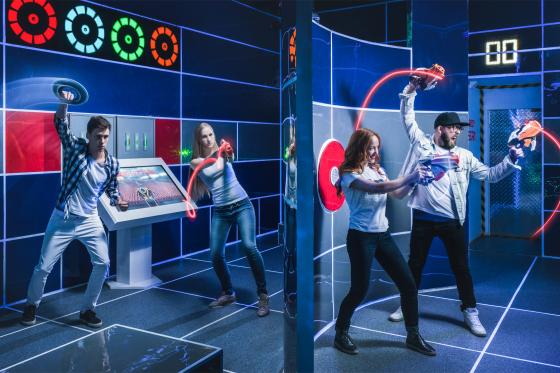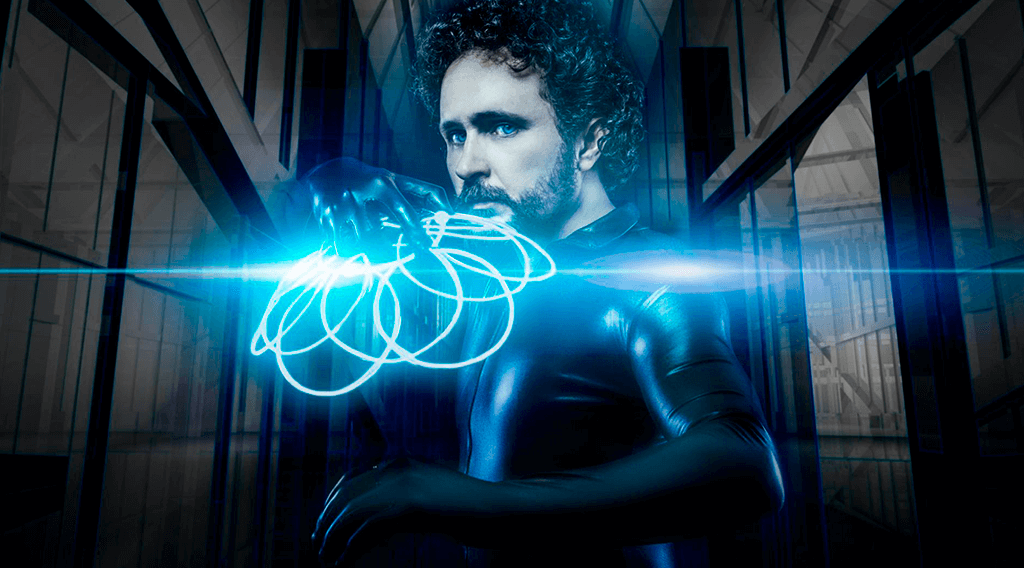An Introvert’s Guide to Loving Escape Rooms—Even If You’re Not a Fan of Loud Groups

A celebration, a party, a team game—for some people it’s a joy, for others it’s stress. An introvert does not seek crowds; they feel comfortable in their own inner world. But are all group activities really designed only for extroverts? Not at all. Modern escape rooms prove the opposite—even the most focused and calm person can genuinely enjoy them.
An escape room is not a show where you need to be the center of attention. It is more like an intellectual walk, where logic, observation, and composure play the key role. And these are exactly the qualities introverts possess.
Escape Rooms Through the Eyes of an Introvert
During the game you don’t need to fight for leadership, shout, or persuade the team. Quite the opposite: you have to listen, notice, think. An escape room is a space where your inner world becomes the main instrument.
Introverts often turn out to be the best players. They know how to analyze, take their time, and spot patterns others overlook. So even if loud events are not your thing, you will feel natural in an escape room.
Why Escape Rooms Are Sometimes Easier for Introverts Than for Extroverts
Psychologists and experts in personal development emphasize that escape rooms have a special effect on introverts—and here is why:
- No social pressure. You speak only when you have an idea or a discovery.
- Everything is structured. There is a goal, rules, and a logical sequence of actions.
- You are part of a team without pressure. Everyone does their part—and that is enough.
- Focus is on substance, not on socializing. Tasks, puzzles, space—these are your "conversation partners".
Impressive, right? And this is not even the full list of positive effects of visiting escape rooms in Canada!

How to Choose an Escape Room to Get Maximum Enjoyment
The ideal escape room for an introvert is one that is engaging yet calm. Without stress, loud effects, or too many players.
Before booking, pay attention to the following factors:
- Theme. Avoid horror or action—choose detective, historical, or adventure narratives.
- Team size. Ideally 2–4 people. A small group makes it easier to find rhythm.
- Atmosphere. The room should be quiet and cozy. There must be space for thought, not just for action.
- Duration. 45–60 minutes is ideal to avoid fatigue.
If you consider these points, you will get not just a game but a soft mental therapy—with logic, puzzles, and pleasant team dynamics.
Escape Room as a Way to Know Yourself
For an introvert, an escape room is more than entertainment. It is a chance to show yourself in a space where words are secondary. You can simply observe, explore, think—and still remain part of the team.
Sometimes it is here that an introvert discovers new sides of their character. Each solved puzzle brings a sense of victory, and each clue becomes a small triumph of attentiveness. It is not so much a social game as a kind of adventure within clear rules.
How to Get Real Satisfaction from the Game
To get the most positive experience from the escape room, here are a few useful tips:
- Don’t try to win—enjoy the process instead.
- Use your strengths: attentiveness, analytical thinking, intuition.
- Don’t be afraid of silence. Silence is not weakness—it is a way to hear better.
Remember: this is a game, not a competition.

And Finally—Why You Should Try It
An introvert in an escape room is not an exception but a hidden ace. Such people bring balance to the team, add logic, calmness, and attention to detail. In an escape room you don’t need to act, you don’t need to "turn on sociability"—it is enough to be yourself.
And perhaps this will be the first time you realize that a team game is not about noise but about synergy. Not about rivalry but about cooperation. And then the exit from the room will become not just the end of the game but a symbol—of stepping out of your fear zone into a space that is interesting, safe, and genuinely fun.
FAQ
Are escape rooms suitable for introverts if they dislike noise and crowds?
Yes. An escape room is not about noise or competition but about logic, observation, and calm actions. You don’t have to be "the life of the party"—it is enough to think and take part in solving tasks.
What is the advantage of an escape room specifically for introverts?
There is no social pressure during the game: you speak only when you have an idea. There is a clear structure, rules, and a goal — everything that creates a safe and comfortable environment for people with an inward-focused thinking style.
How to choose the ideal escape room if you are an introvert?
It is better to choose detective or historical scenarios without horror, pick a small team of 2–4 people, and opt for a themed room with a calm atmosphere. The optimal duration is 45–60 minutes to avoid feeling overwhelmed.




